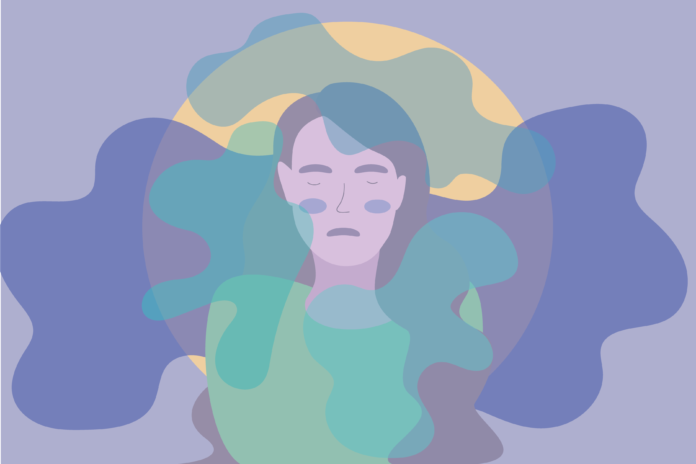Make sure to take care of yourself during winter quarter
By ALEX MOTAWI — almotawi@ucdavis.edu
As a student, schoolwork always comes first; we pay tuition and take classes for a reason. However, people often deprive their bodies of what they need to succeed at school, and the problem is exacerbated during the cold and dreary winter months. A diet full of rainy days and cold weather in which the sun is missing from our lives really changes people. After a winter season full of family time, festivities and some much-needed relaxation, getting back into a healthy groove isn’t easy. Seasonal Affective Disorder (SAD), along with the winter blues, can have serious impacts from a loss of energy to feelings of depression, so make sure to take extra care of yourself these next few weeks.
Seasonal depression has been around for ages in the form of the “winter blues” but wasn’t formally discovered until 1984. To receive a SAD diagnosis, a person must face symptoms of major depression only during a certain time of year for at least two years, and the episodes must be different from traditional depression episodes. While there is no scientifically proven source of the issue felt at varying intensities by millions of people (~5% of U.S. adults suffer from SAD), current scientific research points toward a lack of sunlight as a primary cause. About 15% of Americans also suffer from the winter blues around this time of year.
A lack of enough sunlight and inconsistent weather really does affect our brains. It is theorized that we get SAD because the lack of sunlight affects our sleep schedules, impacts the regulation of serotonin (which is what makes us feel happy), leads to overproduction of melatonin (which makes us feel sleepy) and often brings about vitamin D deficiencies. While experts haven’t reached a consensus on which of these are the strongest contributors to SAD, all of these issues are very real and affect many of our brains. Please don’t feel like you are alone in feeling a bit down during the winter — it’s a struggle many of us face.
Because of this, make sure to treat yourself well over winter. Work towards those New Year’s resolutions, but don’t do it to the detriment of your mental and physical health. Staying above water during the winter is tough enough as it is. After a winter break chock full of family time and lifelong memories, the return to reality can feel like a slap in the face sometimes — don’t let it leave you down in the dumps. Staying ahead of your problems and keeping your mental health in mind when making decisions is never easy, but your body will thank you for it when you do.
Some specific advice I can offer to combat winter blues is to make the most of the limited hours of sun we are going to get in the next few months. Just spend a few minutes going for a walk with the sun on your back or find some warm clothes and watch the sunset when you can — the sun heals, literally. The feeling you get from being outside and being in the sun is hard to find anywhere else and brings about smiles nobody has to pay for; get your smiles in while you can.
As far as making sure to take care of yourself over winter outside of playing hide-and-seek with the sun, there are many things you can do. Some of the less glamorous but extremely effective options are to try to sleep more hours (and more consistent hours) and drink more water (being dehydrated doubles your risk of suffering from depression). Two more quality ways to stave off the winter blues are to have social time with friends (while being COVID-19 safe) and to exercise.
If you only gather one thing from this piece, I want you to know that you are not alone in feeling down over the winter. Seasonal Affective Disorder is something we often overlook, but it is a real thing that should not be swept under the rug. Make an effort to treat yourself better this winter — a little bit of extra love can go a long way.
Written by: Alex Motawi — almotawi@ucdavis.edu
Disclaimer: The views and opinions expressed by individual columnists belong to the columnists alone and do not necessarily indicate the views and opinions held by The California Aggie.





